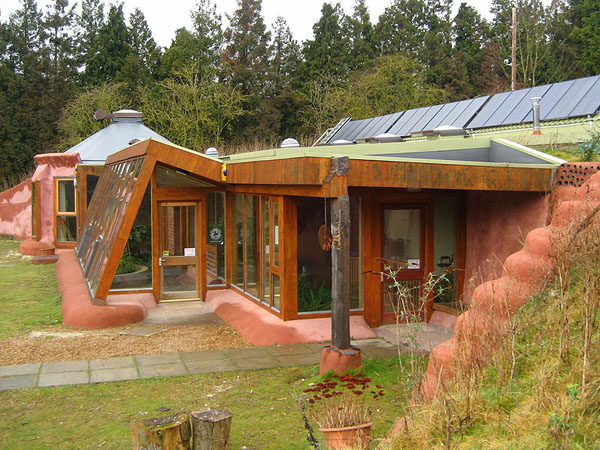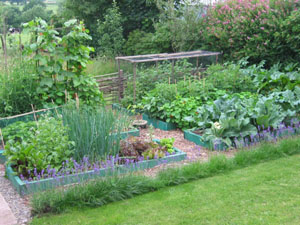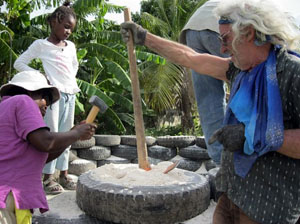Nicola Thomas of ARCH-angels architects talking Permaculture: Part 1

When good news comes calling it’s hard not to shout it from the rooftops; this month is one of those occasions. As architects, we get excited about all of our projects; it’s part and parcel of doing what you love – each assignment takes us on a new journey, with its own idiosyncrasies.
Now and then, though, a commission comes along that really gets the juices flowing and presents an irresistible challenge. A few weeks ago we were given the go ahead to start planning for a project in the Caribbean.

The opportunity to design in the Caribbean has enough cachet of its own, you’d think. Well, stunning weather and scenery aside, the real interest in this project is the nature of the build – nature being the operative word. This latest commission centres around Permaculture.
What’s Permaculture, I hear you ask? Well, we’re lucky in Brighton and Hove to have an active permaculture organisation, The Permaculture Trust, which uses the Stanmer Park earthship as a base for many of its educational courses. The earthship is a building which complements Permaculture principles and ethics.
What is Permaculture?
‘Permanent Culture’ is essentially a way of living that centres on nature and the unique ecology of where we live. It draws on a mix of traditional farming practices, modern science and technology to create a way of living that draws on the ecology of the specific site; incorporating plants, animals and all ecosystems into the design, as well as crafting living spaces that have a synergy with the natural world.

All ecosystems are central to Permaculture design; each complements one other and has a host of functions. A pond, for example, can be used as an aquaculture centre, a water source for humans and gardens and for cooling hot winds as part of a climate control system. The whole process of permaculture design is the successful integration of plants, animals and buildings, (including people) used in a way that harnesses the individual climate with minimal impact and without upsetting the balance of nature.
Where a building is concerned a key facet is to avoid a reliance on fossil fuels by considering the position of the building to maximise the benefits of prevailing winds to cool and heat, for example. Unlike constructions in the UK, the focus for a Caribbean development is essentially to keep the property cool and harness the sun’s rays to generate energy that can be used throughout the site.
There are three main ethics at the heart of permaculture, which will shape the approach of the design. To find out what they are and to learn a bit more about the approach to Permaculture catch Part 2 next month. In the meantime, if you like the sound of the Permaculture philosophy, have a look at the permaculture trust website to find out about upcoming events and courses: www.brightonpermaculture.org.uk
Richard Zinzan and Nicola Thomas are founders of ARCH-angels Architects in Brighton, an approachable local practice specialising in environmentally conscious, cost-effective architecture. We work closely with you to maximise your space and provide beautiful integrated buildings. www.aaarchitects.co.uk
t 01273 267184
e info@aaarchitects.co.uk
w www.aaarchitects.co.uk
Follow me on twitter: ArchAngelsBton





















